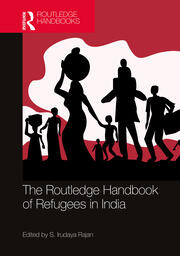Dr. Kelzang Tashi

|
Dr. Kelzang Tashi Postdoc-Forschungsstipendiat |
Position
- Postdoc-Forschungsstipendiat der Alexander von Humboldt-Stiftung
Contact Information
E-Mail: tashikelzang27@gmail.com
Biography
Dr Kelzang T. Tashi has commenced his appointment as a Postdoctoral Fellow in the Department of Anthropology, South Asia Institute, Heidelberg University with effect from 1 April 2023. He is also a Visiting Fellow in the Department of Anthropology, LSE, and was previously a Postdoctoral Fellow in the Asia Research Institute at National University of Singapore and a Research Associate in the Asian Institute, University of Toronto. Dr. Tashi obtained his PhD in Anthropology at the Australian National University in late 2020. His research uses ethnographic methods to study the intersection of religion, society, kinship and gender, health and indigenous healing, migration, and the environment, with a regional focus on the eastern Himalayas, including Tibet and emerging research interests in Yunnan, China and Mongolia. Dr Tashi’s scholarly research is concerned with the ways in which religious and social transformations are shaped by the dynamics of history and ideologies, politics and policies, gender and land use, migration and mobility, and climate change and development in the region. He is also interested in studying human-environment interactions in relation to human-wildlife conflicts and the impacts of conservation policies and practices on community livelihoods and belief systems. Dr Tashi’s recent book (New York, OUP, 2023), which is based on his PhD thesis, investigates the persistence of pre-Buddhist Bon beliefs in Bhutan despite the presence of the invalidating force—Buddhism. Through an analysis of the relationship between Shamanic Bon and Buddhism, and the contemporary dynamics of Bhutanese society, it tackles the longstanding concern of anthropology: cultural persistence and change, and religious syncretism.
Humboldt Project
Dr Tashi’s project examines tensions between local inheritance practices and government policies in Bhutan. Bhutanese society is characterised largely by matrilineal social arrangement with women owning the house, land, and other possessions. Women are the heads of households and matrilocal marriage residence is ubiquitous. The adult men have no entitlements to any part of their matrilineal family estate as they marry out and become core members of their wives’ households. However, in the early 1980s, the government enacted a series of social reforms in relation to land inheritance and marriage practices, which were implemented only recently. The land reform provides for equal inheritance rights for sons and daughters, and the marriage reforms not only prohibited the common form of marriage between first cross- cousins, but also required that a child’s biological father be identified on the birth certificate. This project investigates the extent to which land inheritance and matrimonial practices in rural villages in central Bhutan are being transformed as a result of these legislative changes, in light of anthropological debates about the fragility and resilience of matriliny in the face of modernisation. More generally, the project asks whether the state has been captured by patriarchal interests and how these conflicts play out at national and local level. As part of his Humboldt project, Dr Tashi is also examining human-nonhuman relations in Bhutanese animist ontology and their impacts on environmental conservation.
Publications
Books
Tashi, T. K. (2023). World of Worldly Gods: the persistence and transformation of Shamanistic Bon in Buddhist Bhutan.New York: Oxford University Press. LinkSelected Articles
Tashi, T.K. (2023). Pre-Buddhist Bon religious practice in Bhutan. The Oxford Research Encyclopaedia of Asian History. https://doi.org/10.1093/acrefore/9780190277727.013.733Tashi, T. K. (2022). Life on the porch: marginality, women, and old age in rural Bhutan. Journal of Anthropological Research, 78(1), 35-58. https://doi.org/10.1086/717846.
Tashi, T. K. (2021). The (un)Changing Karma: Pollution Beliefs, Social Stratification, and Reincarnisation in Bhutan. The Asia Pacific Journal of Anthropology, 22(1), 41-57. https://doi.org/10.1080/14442213.2021.1884125.
Tashi, K. (2015). A quantitative analysis of practice of distributed leadership: Teachers’ perception of their engagement in four dimensions of distributed leadership in Bhutanese schools. Asia Pacific Education Review, 16(3), 353-366. https://doi.org/10.1007/s12564-015-9387-4.











